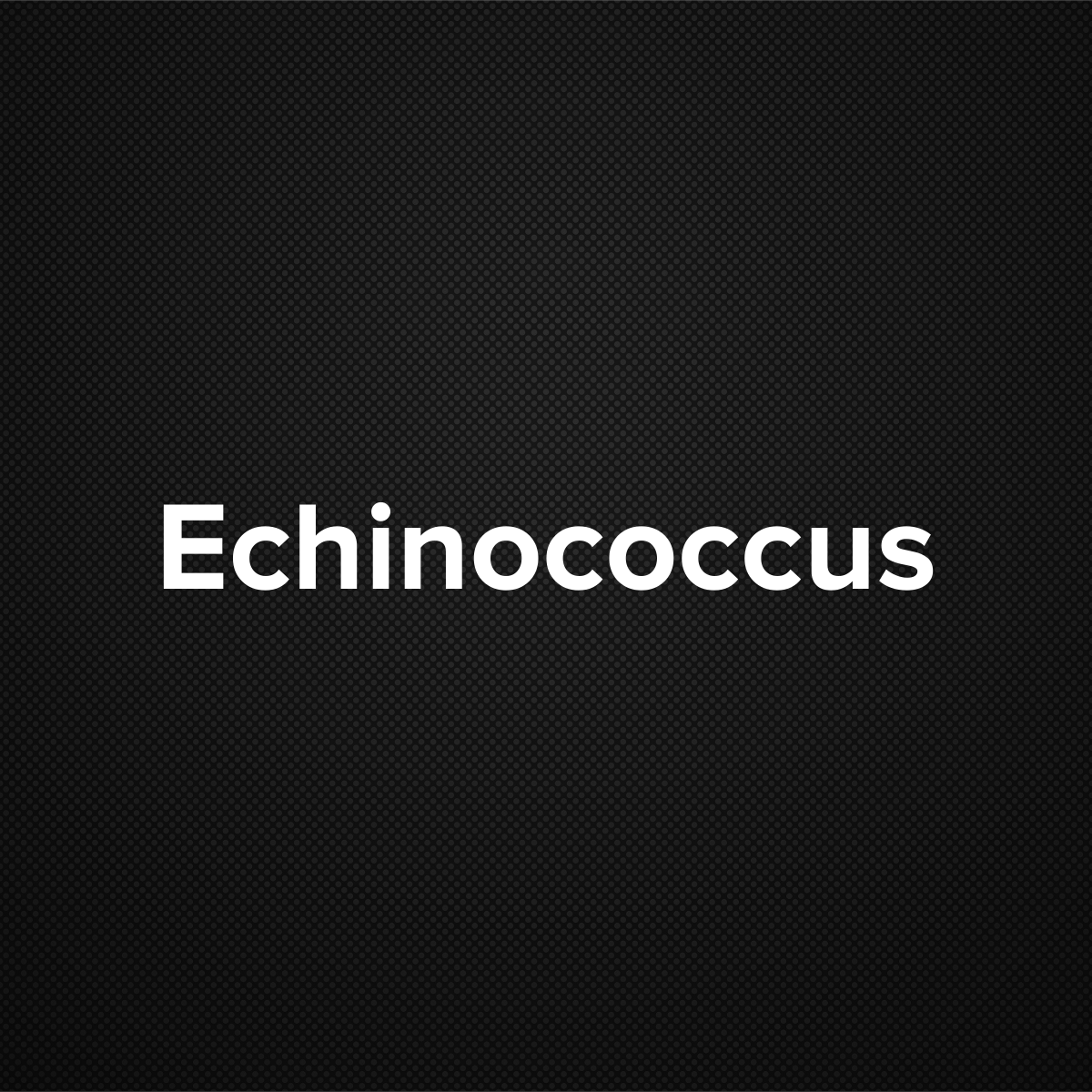Causes and risk factors
Echinococcus is caused due to Echinococcus granulosus or Echinococcus multilocularis. The cycle consists of the definitive host (dogs and other carnivorous animals) and intermediate hosts (sheep, goats, swine, human beings, etc). The adult worm harbors in the body of the definitive hosts. The eggs are passed through the feces. Through the contaminated soil or food ingestion of these eggs causes entry of the organism into the body of the intermediate host. In the body of the intermediate host, the eggs hatch and cause release of oncosphere. These oncosphere penetrate the intestinal wall and through circulation reach different organs of the body, especially the lungs and the liver, where they form cysts. Gradually the cyst enlarges forming daughter cysts. When the intermediate host eats the organs containing these cysts the parasite enter the body of the intermediate host, it attaches itself to the intestinal wall and grows into adult worm simultaneously leading to development of complaints.
Clinical presentation
Echinococcus is classified as cystic echinococcus and alveolar echinococcus. In cystic form, initially the patient remains asymptomatic. Over time the patient complains of pain in abdomen, nausea, and vomiting. There occurs development of cyct in various parts of the body, particularly the liver and the lungs. Along with this, other flu-like complaints such as fever, chills, headache, body ache, and fatigue are also experienced by the patient. Pain in the chest, cough, and skin rash are other symptoms seen. Cough is of productive type with bloody sputum. Rupture of the cysts can lead to mild to severe anaphylaxis. In alveolar form, there occurs tumor formation in the liver which can spread to other parts of the body too. Alveolar form is serious one and can even lead to liver failure and death.
Investigations
Diagnosis is confirmed on the basis of the symptoms narrated by the patient and examination carried out by the doctor. Ultrasonography of the abdomen and pelvis along with MRI or CT scan of the affected organ helps in confirming the diagnosis. Along with this, routine blood tests and serological investigations can also be done.
Treatment
The treatment plan consists of surgical removal of the cysts. Various surgical approaches can be adopted. Chemotherapy, cyst puncture, percutaneous aspiration can also be done. Radical surgery along with chemotherapy is the treatment plan for alveolar form. Certain preventive measures like maintenance of personal hygiene, proper storage and handling of food, timely disinfection of the slaughter house, avoiding pets to feed on rodents, etc., needs to be implemented.
Other modes of treatment:
Certain other modes of treatment can also be helpful in coping up with the symptoms. Taking into consideration the symptoms in a holistic way, homoeopathy can offer a good aid for the relief of the symptoms. The Ayurvedic system of medicine which uses herbs and synthetic derivates can also be beneficial in combating the complaints.






























